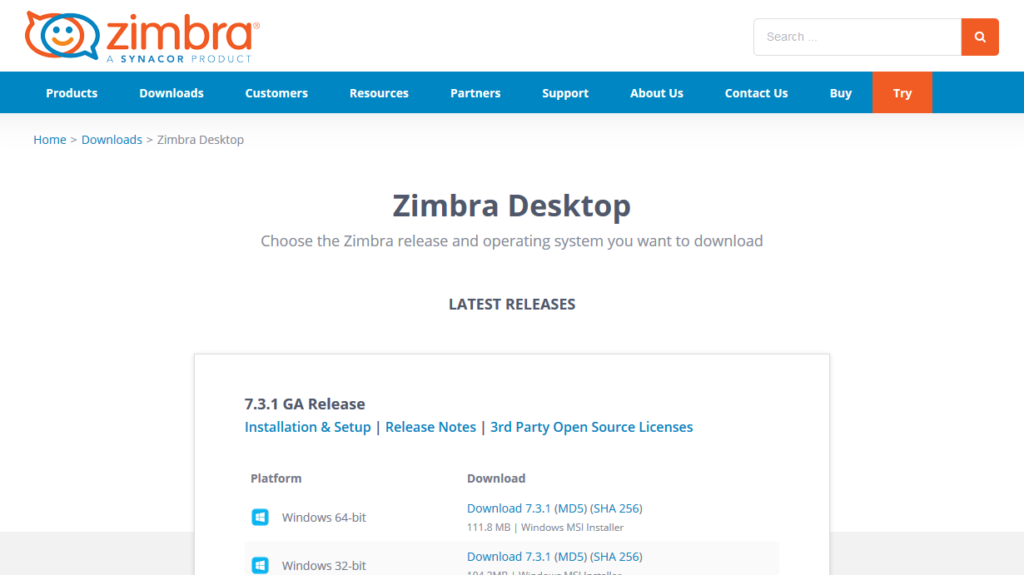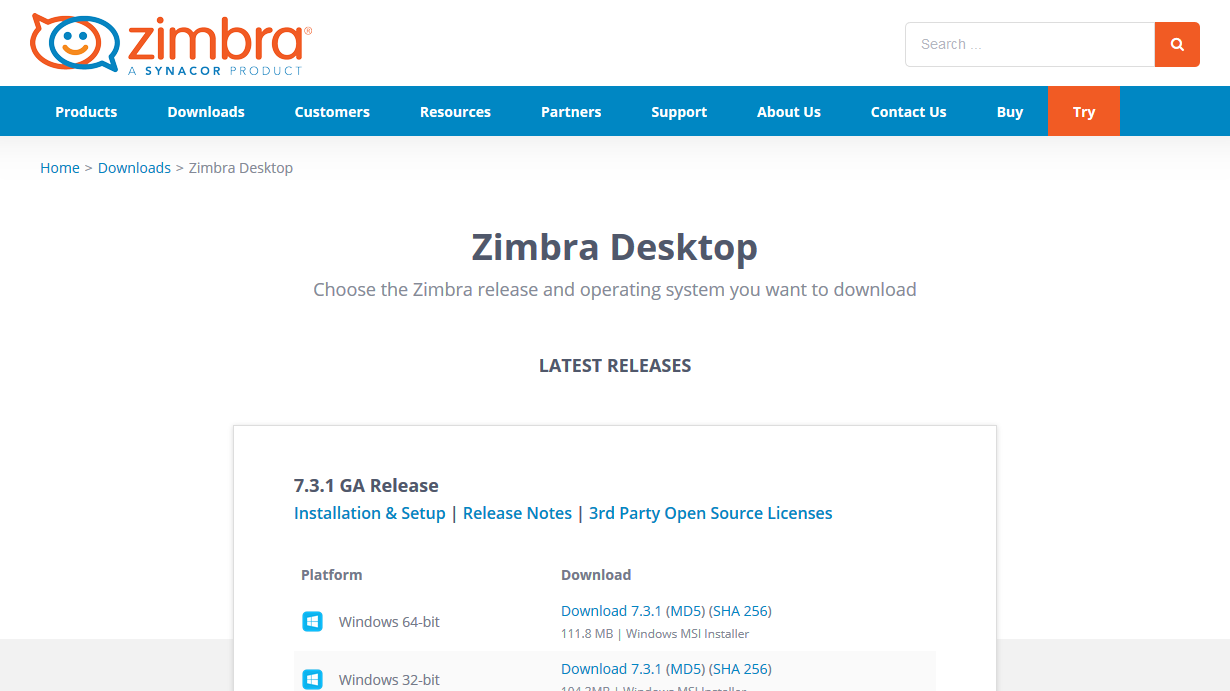

#ZIMBRA DESKTOP PRICE CODE#
IE has a mechanism called a Browser Helper Object (BHO) which is basically a gob of executable code that gets informed of web requests as they're going.

If you're using IE, then either you don't care or you don't know about all the vulnerabilities that IE has. In addition, they tend to be the less-savvy chunk of the market. Most adware targets Internet Explorer (IE) users because obviously they're the biggest share of the market. On second thought, you might be doing 110% of the work if you jump from XP to 7.
#ZIMBRA DESKTOP PRICE INSTALL#
More to the point is Charles' observation: if you're going to offload your data, wipe the disk, and perform a clean install anyway, why not use the opportunity to switch to Linux? You're going to be doing 90% of the work if you jump from XP to 7 you might as well invest a little bit more effort and dump Windows completely.
#ZIMBRA DESKTOP PRICE UPGRADE#
And one reason I switched to Debian is because it does offer the ability to upgrade the OS without a reinstall. But unlike Windows, Linux supports multiple partitions, so I didn't have to wipe out my old OS in order to install a new one. I just switched to Debian Linux, and that involved a clean install. Now, regular readers of this site will know that this process is not unique to Windows. "This requires the user to back up their data, install Windows 7, re-install the programs and restore their data." This means wiping their computer hard drive’s data first, which doesn’t sound much like an upgrade to us. Microsoft confirmed yesterday that Windows XP fans would be able to purchase a licence and media to “upgrade” to the new OS once it lands.īut this being Redmond there is a caveat: XP customers have to perform a clean install of Windows 7. We do not recommend Zimbra customers run Zimbra Desktop Beta in production." So I may wait for the first "full" release before trying it. Zimbra says "As with any Beta product, please use Zimbra Desktop at your own discretion. It also claims to be better at handling large mailboxes than Thunderbird (and yes, I am starting to notice Thunderbird's limitations in this direction). Second, Zimbra will collect email from your POP3 and IMAP accounts, and from your Yahoo! Mail, Gmail, and Hotmail accounts. Two striking features: first, like Outlook, this is a comprehensive organizer that includes calendar, task list, and - when used with a Zimbra server - group collaboration functions. (I observe with some amusement that they don't mention Evolution in their features comparison.) Zimbra Desktop, however, is a program that runs on your computer, like Thunderbird or Outlook. Also, I like to store my files on my computer, and not out in the "cloud" somewhere. I had not previously reported on the web-based Zimbra client because, being at the end of a slow Internet connection, I find most web-based tools less than useful. A chap from the local Linux Users Group sent me a recommendation for Yahoo's Zimbra Desktop, an open-source email-and-collaboration client for Linux, Mac, and Windows, currently in beta-test release.


 0 kommentar(er)
0 kommentar(er)
